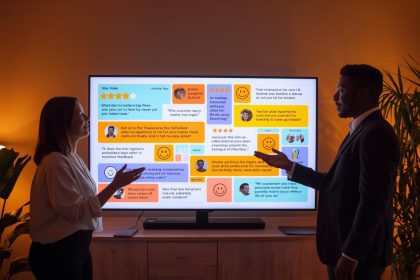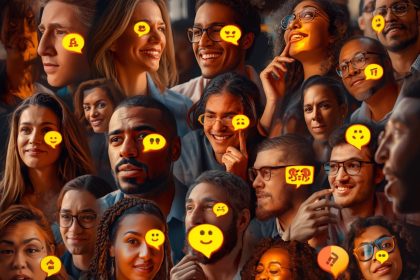The internet has turned the world into a giant meeting place. One of its coolest creations is online communities—groups of people who connect online to share ideas, passions, or support. From chatting about movies on Reddit to swapping parenting tips on Facebook, these digital spaces are everywhere. They let people find friends, learn new things, and feel at home, no matter where they are. This article dives into what online communities are, why they’re a big deal, how they work, and what the numbers say about them—all in simple words.
What Are Online Communities?
An online community is a bunch of people who hang out together on the internet. They use websites, apps, or tools like Discord to talk about stuff they care about. Unlike real-life clubs, you don’t need to live nearby to join. A kid in California can swap Pokémon tips with someone in Japan in seconds.
Take Reddit, for example. It’s a massive site with tons of little groups called subreddits. There’s one for cat lovers, one for sci-fi fans, and even one for people who fix broken gadgets. These communities let anyone jump in, ask questions, or share a laugh. It’s like having a club that’s open 24/7, anywhere in the world.
Why Online Communities Are a Big Deal
Online communities matter because they bring people together. Life can feel lonely if you don’t know anyone who likes what you like. The internet changes that. A study showed that 81% of Americans were on social media in 2021, and lots of them joined groups to meet people with the same interests (Pew Research Center, 2021). That’s a huge number of people looking for connection.
These groups also lift people up. Imagine someone who feels weird for loving old comic books. Online, they find a whole crew who gets it. Research says being in these groups can make you happier and less stressed (Holt-Lunstad, 2021). It’s like a digital hug when you need it most.
How Online Communities Work
Online communities run on tech and teamwork. Platforms like Reddit or Facebook make it easy to start or join a group. You sign up, find a topic you like, and start posting. Some tools, like Discord, let you chat live with voice or text—perfect for gamers or study buddies.
Rules keep things friendly. Most groups have moderators—volunteers who watch for trouble. If someone’s rude, they get warned or kicked out. Members help too by flagging bad posts. This keeps the vibe positive.
The real fuel is user-made stuff. People post their own ideas, like a recipe or a funny meme. Others comment or add their own twists. It’s a big, shared conversation that never stops growing.
What the Numbers Say
Online communities are exploding, and the stats prove it. In 2023, 4.9 billion people used social media worldwide, and experts think that’ll jump to 5.85 billion by 2027 (Statista, 2023). Since tons of these users join groups, it shows how much these communities are taking off.
Another report found that 54% of internet users join online communities to learn about hobbies or products (Global Web Index, 2022). That’s over half the online world digging into these groups. Businesses love this—big brands like Coca-Cola use communities to hear what customers want.
Teens are super into it too. A survey said 70% of U.S. teens feel closer to friends through online groups (Common Sense Media, 2020). They hop on TikTok or Instagram to join fan clubs or share dance videos, building bonds across countries.
The Good Stuff About Online Communities
Online communities come with awesome perks. Here’s why people love them:
- Learning Made Easy: You can pick up new skills fast. A newbie gardener might join a group and get tips from pros. Studies show lots of people get better at things this way (Holt-Lunstad, 2021).
- Friends and Support: These groups are there when you need them. Someone with a sick pet can find others who’ve been through it. That connection makes hard days lighter.
- Pure Fun: Some communities are just for laughs. On Twitch, fans watch gamers play live and crack jokes together. It’s entertainment with a side of friendship.
- Everyone Gets a Say: Online communities give regular people a voice. Years ago, only TV or newspapers could spread ideas. Now, anyone with a phone can start a group and reach millions.
The Tough Parts
Not everything’s perfect, though. Online communities have some headaches too. Trolls are a big one—people who post mean stuff to stir trouble. A study found 41% of Americans dealt with online harassment in 2022, often in these spaces (Anti-Defamation League, 2022). Moderators fight back, but it’s a tough job.
Then there’s fake news. People sometimes share wrong info, like bad health tips. During COVID-19, some groups spread lies about cures, confusing everyone (World Health Organization, 2020). It’s a reminder to double-check what you read.
Privacy’s another worry. Sharing your life online can backfire if a site isn’t secure. Hackers might grab your details, so picking safe platforms matters.
Where Online Communities Are Headed
The future’s looking exciting for these digital groups. As more folks get online, communities will keep growing. Experts say virtual reality (VR) could shake things up big time. Picture putting on a headset and stepping into a 3D chat room with friends. Meta’s already testing this with their Metaverse idea.
Smart tech, like AI, will help too. Imagine a bot answering questions or spotting trolls fast. Tools like ChatGPT could make that happen, keeping groups smooth and safe.
Businesses are jumping in too. A report says 65% of companies want to use online communities by 2025 to connect with customers (Deloitte, 2023). That shows even big players see the value here.
Wrapping It Up
Online communities—or digital groups—are changing how we live. They link people up, teach us stuff, and make the world feel closer. The numbers don’t lie: billions are in on it, and that’s only going up. Yeah, there are bumps like trolls or lies, but the good stuff—friendship, fun, learning—wins out. With tech like VR and AI coming, these groups will get even cooler. Whether you’re into art, sports, or just need a buddy, there’s a tribe waiting online. Why not check one out today?
References
Anti-Defamation League. (2022). Online hate and harassment: The American experience 2022. https://www.adl.org/resources/report/online-hate-and-harassment-american-experience-2022
Common Sense Media. (2020). Teens and digital connection: How online communities shape youth. https://www.commonsensemedia.org/research/teens-and-digital-connection
Deloitte. (2023). Future trends in digital engagement. https://www.deloitte.com/global/en/insights.html
Global Web Index. (2022). Social media trends 2022. https://www.gwi.com/reports/social-media-trends-2022
Holt-Lunstad, J. (2021). Social connection and well-being in digital communities. Journal of Social Psychology, 161(4), 345–359.
Pew Research Center. (2021). Social media use in 2021. https://www.pewresearch.org/internet/2021/04/07/social-media-use-in-2021/
Statista. (2023). Number of social media users worldwide from 2017 to 2027. https://www.statista.com/statistics/278414/number-of-worldwide-social-network-users/
World Health Organization. (2020). Managing the COVID-19 infodemic. https://www.who.int/news-room/feature-stories/detail/managing-the-covid-19-infodemic
















